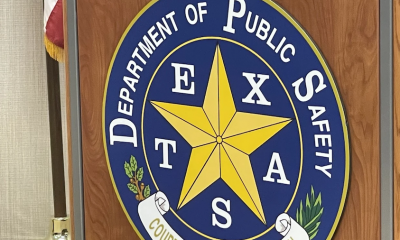Local News
Dallas prosecutor disbarred for withholding evidence that could have cleared men of murder charges
In separate trials, jurors heard none of it. Jackson got his convictions, and Dennis Allen and Stanley Mozee were sentenced to life in prison. Only after an extensive review by the Innocence Project and Jackson’s successors were the men exonerated — 14 years later.
Now, after two decades of legal wrangling, Jackson has been disbarred from practicing law in Texas, in a rare example of severe punishment for misconduct in a wrongful conviction case.
Jackson surrendered his law license last month after the State Bar of Texas said that he had withheld exculpatory evidence in the trials of Allen and Mozee. State appellate judges had previously reached the same conclusion.
In an April 13 order, the Supreme Court of Texas revoked Jackson’s bar card, saying his “professional misconduct” was “conclusively established for all purposes.” He opted to resign of his own accord rather than face official discipline, records show — a move the justices said was “in the best interest of the public, the profession, and Richard E. Jackson.”
Jackson, who has long denied that he withheld evidence from defense attorneys, couldn’t immediately be reached for comment Saturday. An attorney representing him, Bob Hinton, didn’t immediately respond to a request for comment.
Hinton told the Morning News that Jackson didn’t want to spend the money to defend his law license. “If he had the financial wherewithal and he fought it, we would win it,” Hinton told the newspaper. “There’s no question in my mind.”
One recent study found more than half of wrongfully convicted defendants were victimized by government misconduct — but prosecutors almost never face consequences as serious as disbarment. According to the Innocence Project, Jackson is one of just four prosecutors who have been disbarred for misconduct that resulted in a wrongful conviction. In one recent case, a Texas district attorney was disbarred in 2015 after the state bar found he withheld evidence and used false testimony to convict a death-row inmate who has since been exonerated.
Nina Morrison, an Innocence Project lawyer who helped clear Allen and Mozee, called Jackson’s disbarment “a rare event indeed.”
“And long overdue,” she wrote on Twitter. “We worked for over a decade to uncover the evidence hidden by former ADA Jackson and free our clients from their life sentences. And it took two more years for him to be held accountable.”
Allen, now 57, and Mozee, now 62, were both experiencing homelessness when they were accused of murdering the Rev. Jesse Borns, who was found at his South Dallas store with 47 stab wounds in April 1999. Mozee would sometimes help Borns sweep up the shop for pay, according to news archives.
Prosecutors alleged that Mozee and Allen had planned the day before to rob Borns. No physical evidence connected the men to the crime scene, so prosecutors built the case on witness testimony. The men received life sentences for capital murder in August and September 2000.
A decade later, the Innocence Project of Texas and the Dallas County District Attorney’s Office reopened the case. A four-year re-investigation turned up evidence in the prosecutor’s own files that would have benefited the men.
“Much of that evidence was in the trial prosecutor’s own files, but was hidden from the defense until the district attorney’s office adopted an ‘open file’ policy years after Mozee and Allen’s trials,” the Innocence Project said.
Jackson was fired from the prosecutor’s office after a new district attorney was elected in 2006. He retired from practicing law in 2013, according to the Dallas Morning News.
Allen and Mozee were released from prison in 2014 and declared “actually innocent” five years later, after DNA evidence showed they couldn’t have been the killers.
In 2017, the Texas Court of Criminal Appeals ruled that Jackson had withheld evidence that would have benefited the men. The following year, the Innocence Project pushed aggressively for Jackson to be held accountable, filing a sweeping grievance against him with the state bar.
Throughout the ordeal, Allen and Mozee said they tried to stay positive.
“I knew the truth would come to light,” Mozee told reporters at the time of his release. “I hold no animosity toward anyone.”
“I never allowed it to consume me with anger or hatred,” Allen echoed outside the courtroom in fall 2014. “It was surreal. There’s no doubt that there are others out there still waiting to be exonerated, waiting to be cleared.”










